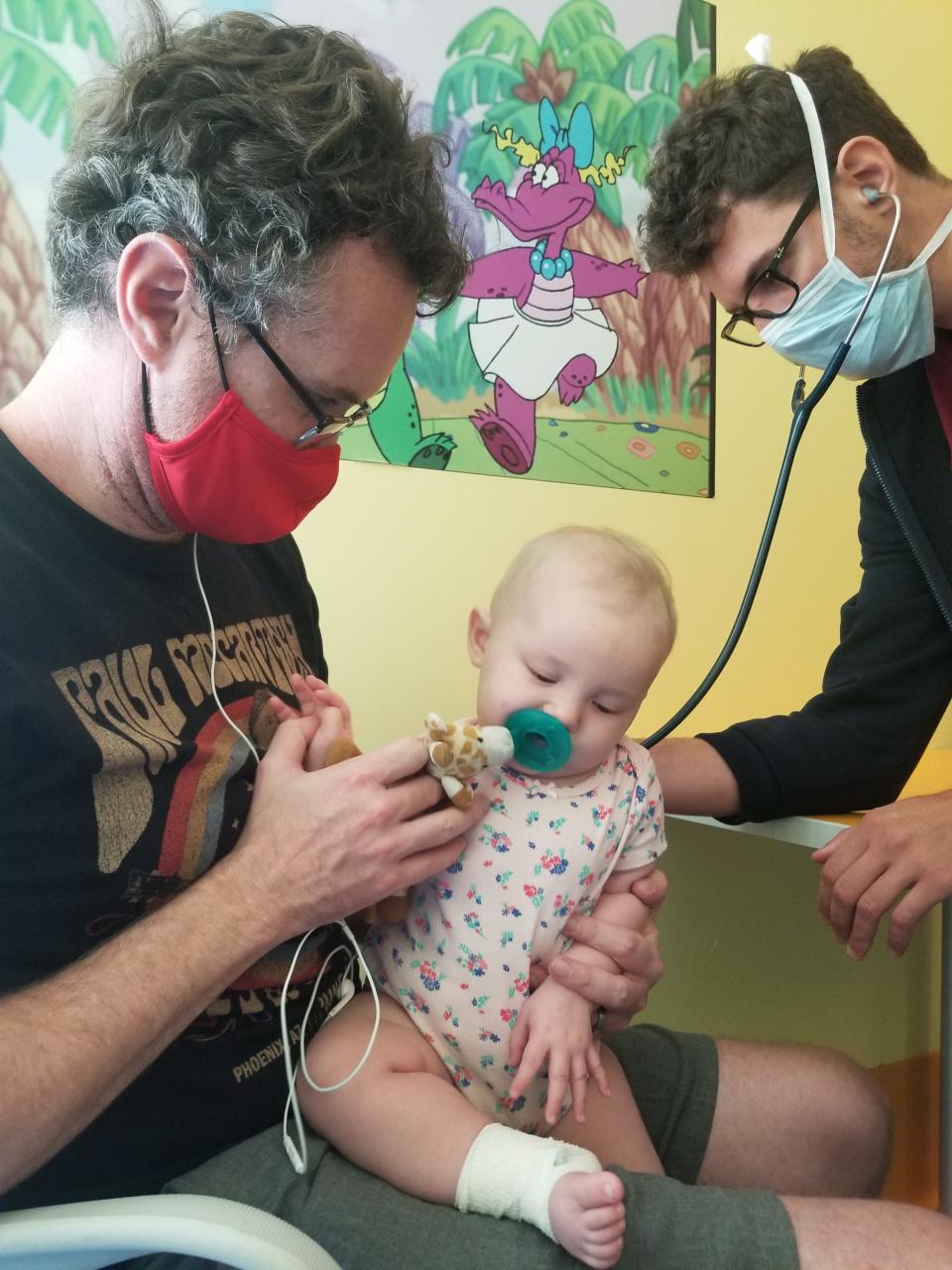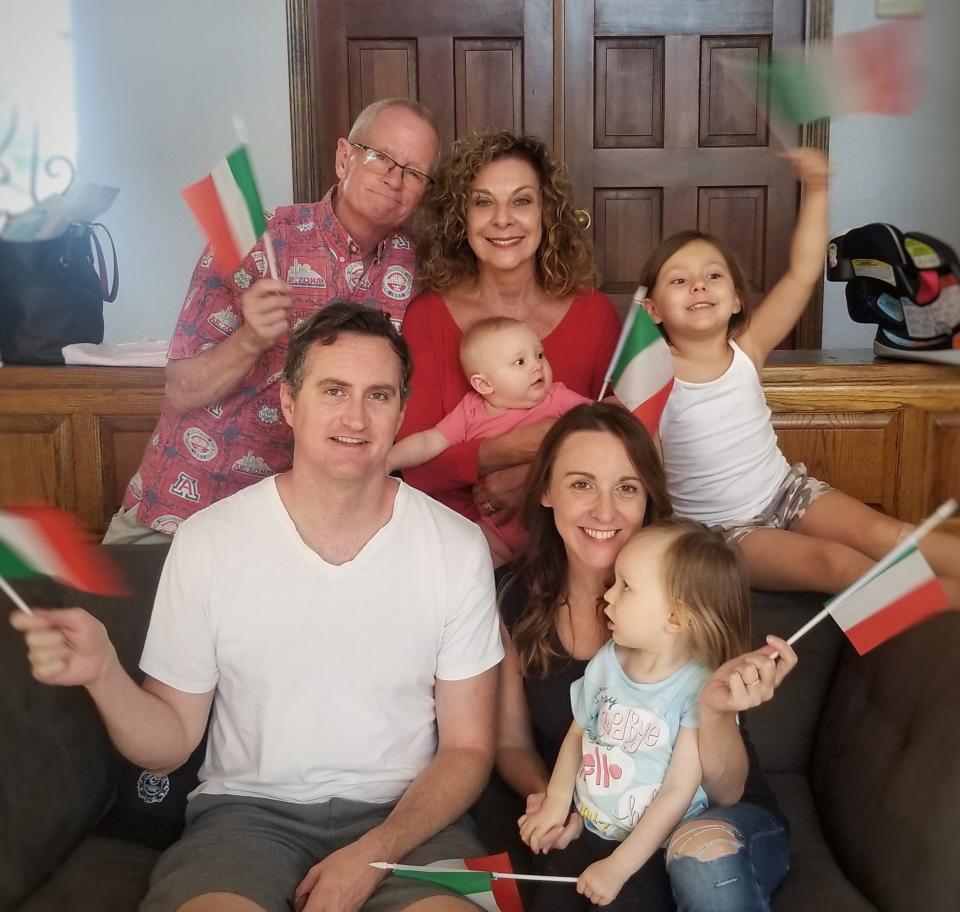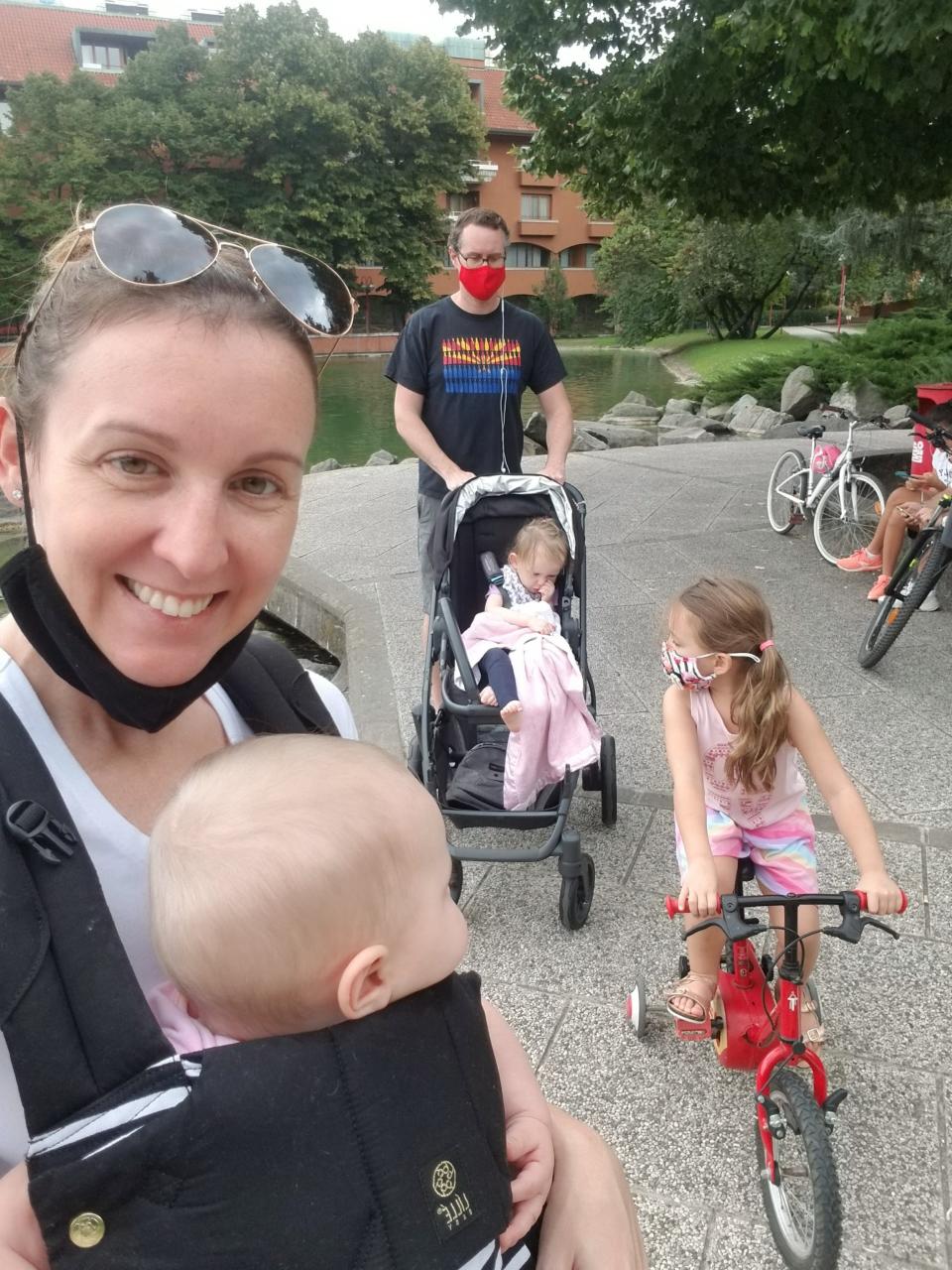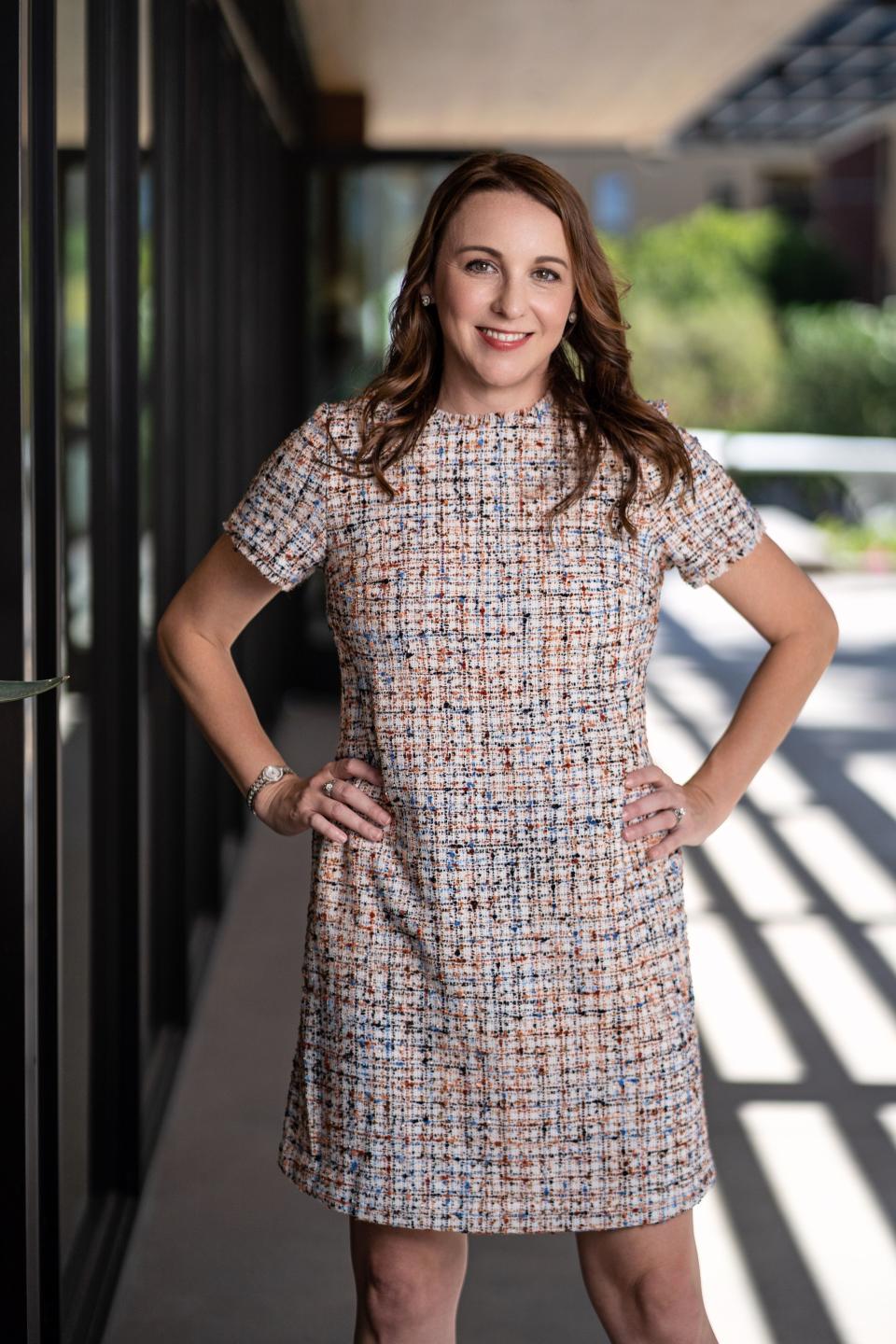My daughter has a rare disease. We shouldn't have had to leave the US to save her life.
Four years ago, my daughter Olivia was diagnosed with a rare and aggressive genetic disorder that attacks the brain and nervous system. She was rapidly losing the ability to walk and talk, and doctors told us that the disease was progressive, meaning Olivia's condition would continue to worsen and she would eventually need hospice care. She was not yet 2 years old.A few months later, our youngest daughter, Keira, was diagnosed with the same genetic disorder – metachromatic leukodystrophy (MLD).
But unlike her older sister, Keira had not yet begun to show symptoms. That bit of luck gave us the extraordinary opportunity to try to save her life, as a cutting-edge gene therapy treatment was showing promising results in nonsymptomatic MLD patients.

Devastatingly, it was too late for the treatment to help Olivia, but we were told it could potentially save Keira's life if she was treated before symptom onset.There was one caveat: The five-month long, personalized treatment, which would be tailored to Keira based on her DNA, was not available in the United States due to the outdated U.S. drug approval process.
US health care system stalls lifesaving treatment options
To get Keira the treatment she needed, our family would have to relocate halfway across the globe to Milan, Italy, in the middle of a global pandemic. It was a race against the clock to get there before Keira’s symptoms set in. Thankfully, our community rallied around us to help raise the half-million dollars we needed to make the move and pay for the therapy, and we were able to get Keira the treatment in time.
But not every family would have been able to do the same.
As genetic and personalized medicine advances at a rapid rate, I fear more and more parents and families will face similar situations. That's why I have been advocating for new laws that would allow patients to try potentially lifesaving individualized treatments that are now out of reach in the United States.

Those laws are needed because the Food and Drug Administration, charged with ensuring the safety and efficacy of treatments and medications, often keeps patients from accessing innovative treatments.
The FDA's current clinical trial system, which puts new medicines through a series of studies that take an average of 10 years to complete, is designed to determine the effects of a treatment on a large population of patients. But individualized treatments, the latest advancements in modern medicine, cannot go through this type of large-scale testing because they are customized to patients based on their individual genetics.For example, Keira's treatment was created by examining her unique DNA and determining how to modify it to ensure her body kept functioning properly. It would be impossible for the FDA to conduct a large-scale clinical trial on this type of treatment because the treatment is different for each individual, and because the patient pool for such a rare disease is so small.
As a result, countless patients with rare and genetic diseases are being denied access to potentially lifesaving treatments that are caught up in the FDA’s outdated clinical trial system.
Parenting styles: My 8-year-old daughter got her first sleepover invite. There's no way she's going.
Right to Try 2.0 laws could help fix FDA's approval process
Patients like my daughter do not have time to waste. Luckily, there is a solution that policymakers can implement to give patients hope now: the Right to Try for Individualized Treatments.
This law would allow patients suffering from rare and genetic diseases to try personalized treatments not yet approved by the FDA, as long as they have the support of their physician and have exhausted other treatment options.This policy would have an outsized impact on patients with rare diseases. Although rare diseases have small patient pools by definition, collectively, about 30 million Americans are estimated to have a rare disease.
What's more, 80% of these rare diseases are genetic in nature, and 95% have no FDA-approved treatment.

I’ve been working with the Goldwater Institute to help raise awareness of stories like mine and pass Right to Try for Individualized Treatment laws.
The law has already passed in Nevada and my home state of Arizona with overwhelming bipartisan support, and lawmakers in California, Iowa and Maryland have introduced legislation for consideration this legislative session with several others states set to follow.
Why are these weapons still legal? Teens brutally attacked me with brass knuckles at In-N-Out
But no patient in any state should be denied potentially lifesaving treatments. I urge lawmakers across the country to remember those suffering from a rare disease and support Right to Try for Individualized Treatments in their state.

Keira's gene therapy treatment was a success, and she is now a vibrant 4-year-old who loves to practice gymnastics, go swimming in the pool and ride her bike (all things she would never have been able to do without receiving this treatment in Italy).
I often refer to Olivia as Keira's guardian angel on earth because her diagnosis allowed us to get Keira into treatment before it was too late. I can only hope that our story continues to help other families fighting rare diseases.
Kendra Riley is a business owner and mom of three girls, two of whom were diagnosed with MLD in 2020. She has since become an advocate for other rare-disease families like hers across the nation.
You can read diverse opinions from our Board of Contributors and other writers on the Opinion front page, on Twitter @usatodayopinion and in our daily Opinion newsletter.
This article originally appeared on USA TODAY: My child has a genetic disease. FDA forbids her lifesaving treatment

